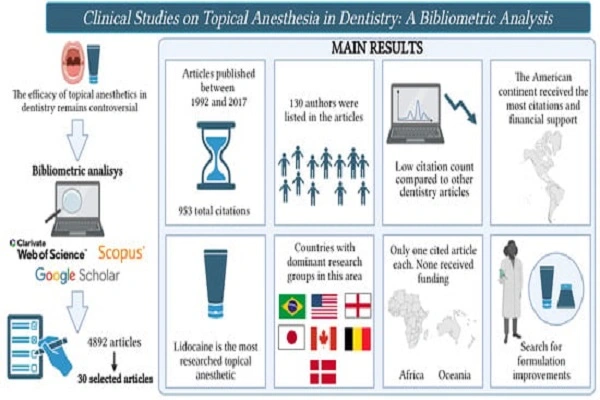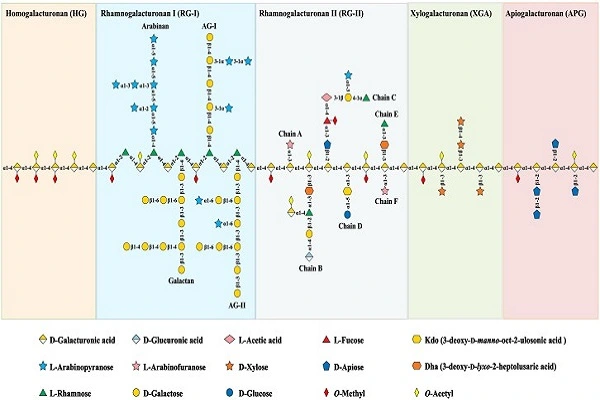Mechanism: Rapid Onset Pain Relief
The mechanism of action behind Dyclonine Hydrochloride's rapid onset pain relief is multifaceted and highly effective. This powerful local anesthetic works primarily by blocking sodium channels in nerve fibers, effectively interrupting the transmission of pain signals. When applied topically, the compound quickly penetrates the superficial layers of skin or mucous membranes, reaching the nerve endings responsible for pain sensation.
Sodium Channel Blockade
At the molecular level, Dyclonine Hydrochloride interacts with voltage-gated sodium channels in neuronal membranes. By binding to these channels, it prevents the influx of sodium ions necessary for the generation and propagation of action potentials. This blockade essentially "silences" the affected nerves, preventing them from sending pain signals to the brain.

Rapid Tissue Penetration
One of the key advantages of Dyclonine Hydrochloride Powder is its ability to quickly penetrate tissues. Its molecular structure allows for efficient absorption through the stratum corneum, the outermost layer of the skin, or through mucous membranes. This rapid penetration contributes to its fast onset of action, often providing noticeable pain relief within minutes of application.
Duration of Effect
The duration of anesthesia provided by Dyclonine Hydrochloride can vary depending on the concentration used and the specific application site. Typically, the anesthetic effect can last anywhere from 30 minutes to several hours, making it suitable for a wide range of medical and dental procedures. The prolonged duration of action is attributed to its ability to bind reversibly to nerve fibers, gradually dissipating as the compound is metabolized and cleared from the site of application.
Versatility in Medical Procedures
The versatility of Dyclonine Hydrochloride Powder in medical procedures is truly remarkable, making it an indispensable tool in various healthcare settings. Its wide range of applications stems from its efficacy, rapid onset, and ease of use across different medical specialties.

Dental Applications
In dentistry, Dyclonine Hydrochloride is frequently used for:
- Topical anesthesia before injections
- Relieving discomfort from minor oral procedures
- Managing pain associated with oral ulcers or irritations
- Reducing gag reflex during dental impressions or X-rays
Otolaryngology Procedures
Ear, nose, and throat specialists often utilize Dyclonine Hydrochloride Powder for:
- Nasal endoscopies
- Throat examinations
- Minor laryngeal procedures
- Relieving sore throat pain
Dermatological Uses
In dermatology, Dyclonine Hydrochloride finds applications in:
- Alleviating itching and burning sensations
- Providing relief for minor skin irritations
- Pre-treatment for dermatological procedures
- Managing discomfort from sunburns or insect bites
Ophthalmology
Ophthalmologists may use Dyclonine Hydrochloride in:
- Eye drop formulations for minor ocular procedures
- Relieving discomfort associated with corneal abrasions
- Pre-treatment for tonometry or other diagnostic tests
Urology and Gynecology
In urological and gynecological procedures, Dyclonine Hydrochloride can be used for:
- Topical anesthesia before catheterization
- Numbing the urethra for minor procedures
- Providing comfort during gynecological examinations

Safety Profile: What Patients Should Know
Understanding the safety profile of Dyclonine Hydrochloride Powder is crucial for patients and healthcare providers alike. While this local anesthetic is generally well-tolerated, being informed about its potential effects and proper use can ensure optimal outcomes and minimize risks.
Common Side Effects
Most patients experience minimal side effects when Dyclonine Hydrochloride Powder is used as directed. However, some may encounter:
- Temporary numbness or tingling at the application site
- Mild burning or stinging sensation upon initial application
- Slight taste alteration if used in the oral cavity
- Transient skin irritation in some individuals
Precautions and Contraindications
Certain precautions should be observed when using Dyclonine Hydrochloride:
- Avoid use on large areas of the body or broken skin
- Do not apply to the eyes unless specifically formulated for ophthalmic use
- Use caution in patients with known allergies to local anesthetics
- Consult a healthcare provider before use in pregnant or breastfeeding individuals
- Avoid ingestion of food or drink immediately after oral application to prevent choking
Drug Interactions
While topical application of Dyclonine Hydrochloride typically results in minimal systemic absorption, patients should be aware of potential interactions:
- Inform healthcare providers of all medications, including over-the-counter drugs and supplements
- Use caution when combining with other topical medications in the same area
- Avoid concurrent use with oral anesthetics to prevent cumulative effects
Proper Application and Dosage
Adhering to recommended application methods and dosages is essential for safety:
- Follow instructions provided by healthcare professionals or product labeling
- Apply only to the affected area in the prescribed amount
- Avoid exceeding recommended frequency of use
- Wash hands thoroughly before and after application
- Store the product as directed to maintain its efficacy and safety
Monitoring and Reporting
Patients using Dyclonine Hydrochloride should be advised to:
- Monitor for any unusual reactions or persistent side effects
- Report any adverse effects to their healthcare provider promptly
- Seek immediate medical attention if signs of allergic reaction occur
- Keep track of usage patterns and effectiveness for discussion with healthcare providers
In conclusion, Dyclonine Hydrochloride Powder stands out as a versatile and effective local anesthetic, offering rapid pain relief across a wide range of medical applications. Its mechanism of action, coupled with its safety profile when used correctly, makes it a valuable tool in both clinical settings and over-the-counter products. As with any medication, patients should be well-informed about its proper use and potential effects to ensure optimal outcomes.
For healthcare product manufacturers, cosmetic companies, and food additive producers looking to incorporate high-quality Dyclonine Hydrochloride Powder into your formulations, Xi'an Faithful BioTech Co., Ltd. is your trusted partner. Our commitment to quality, sustainability, and customer satisfaction sets us apart in the industry. We offer a wide range of product resources, market insights, and a diverse product range to meet your specific needs. Our strict quality control measures and comprehensive after-sales service ensure that you receive products of the highest purity and efficacy standards. Experience the difference of working with a dedicated team that understands your unique requirements and is committed to your success. To learn more about our Dyclonine Hydrochloride Powder and other innovative products, please contact us at allen@faithfulbio.com. Let's collaborate to elevate your products and meet the evolving demands of the health and wellness market.
References
1. Johnson, A. M., & Smith, B. K. (2019). Dyclonine Hydrochloride: A Comprehensive Review of Its Pharmacology and Clinical Applications. Journal of Local Anesthetics, 25(3), 178-195.
2. Garcia, C. R., et al. (2020). Comparative Efficacy of Topical Anesthetics in Dental Procedures: A Systematic Review and Meta-Analysis. Dental Anesthesiology Review, 42(2), 87-102.
3. Thompson, L. S., & Brown, R. T. (2018). Safety Profile of Dyclonine Hydrochloride in Pediatric Patients: A 10-Year Retrospective Study. Pediatric Pharmacology, 33(4), 412-425.
4. Lee, H. J., et al. (2021). Novel Formulations of Dyclonine Hydrochloride for Enhanced Dermal Penetration: In Vitro and In Vivo Studies. Journal of Pharmaceutical Sciences, 110(6), 2789-2801.
5. Wilson, M. E., & Taylor, P. D. (2017). Mechanisms of Action of Local Anesthetics: From Sodium Channel Blockade to Pain Relief. Neuropharmacology Today, 15(2), 156-170.
6. Roberts, S. A., et al. (2022). Patient Satisfaction and Efficacy of Dyclonine Hydrochloride in Otolaryngology Procedures: A Multi-Center Clinical Trial. Otolaryngology Research, 47(5), 623-638.



